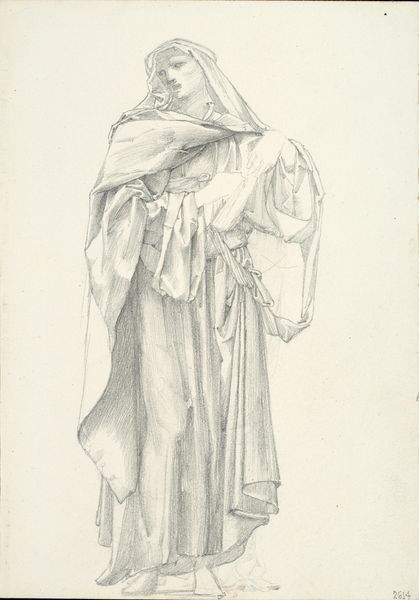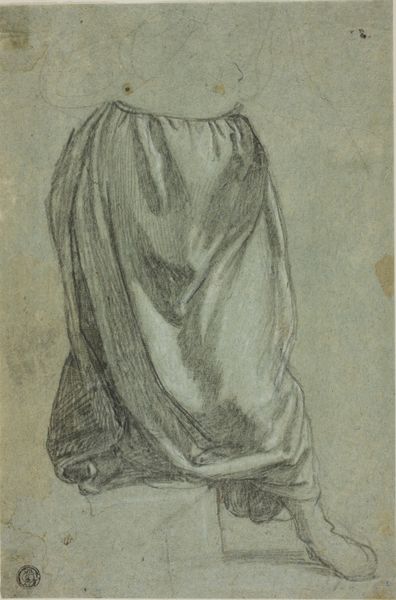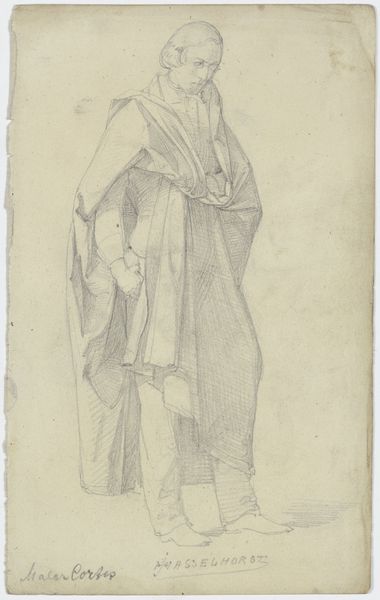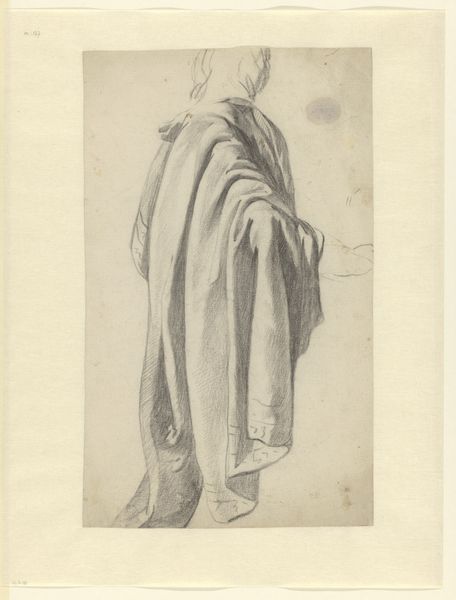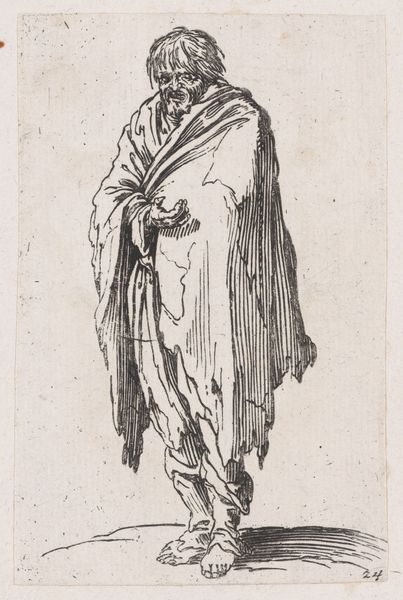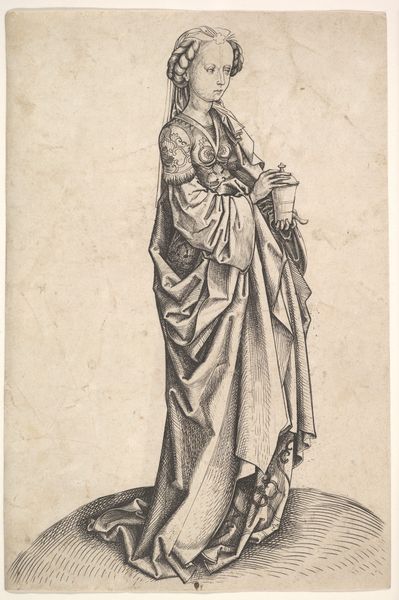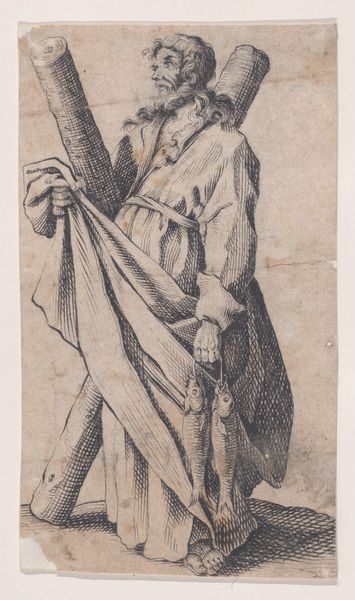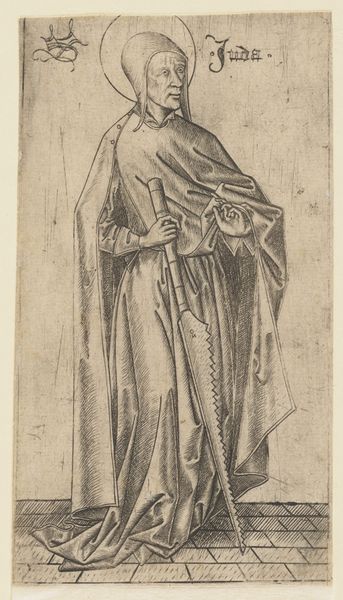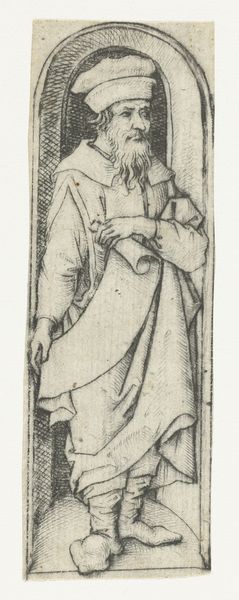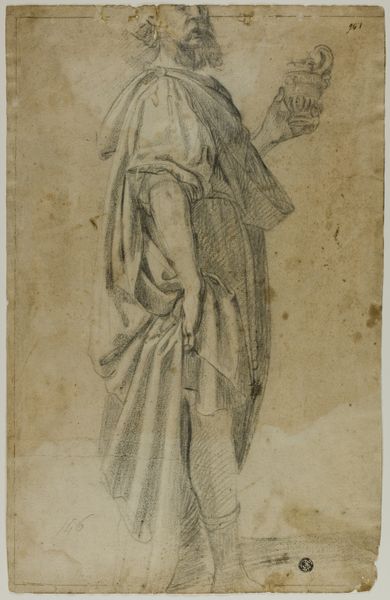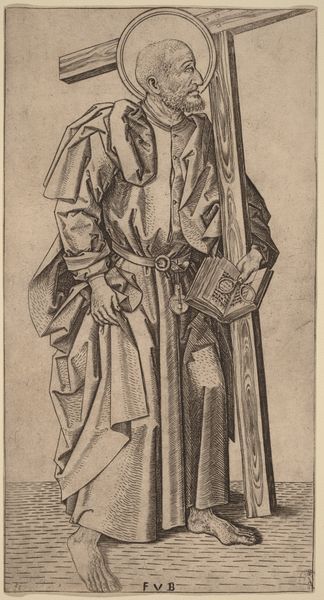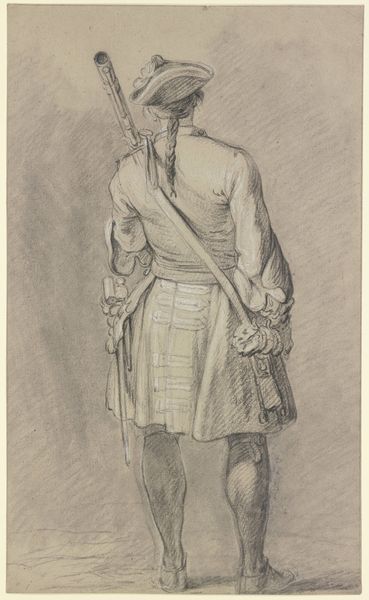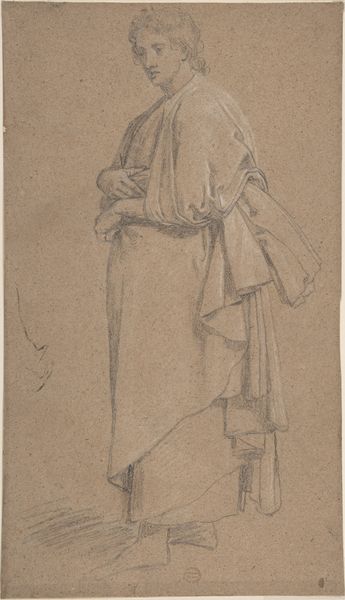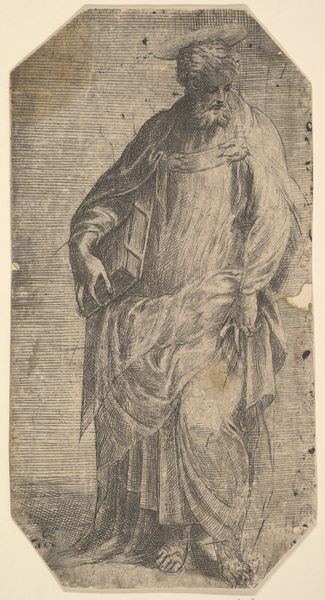
print, engraving
#
portrait
# print
#
old engraving style
#
figuration
#
11_renaissance
#
personal sketchbook
#
pencil drawing
#
portrait drawing
#
northern-renaissance
#
engraving
Dimensions: height 287 mm, width 192 mm
Copyright: Rijks Museum: Open Domain
This is Domenico Vito’s "Hogepriester Zacharias," made using an engraving technique. Engraving is an intaglio process, which involves incising an image onto a metal plate, in this case likely copper, and then using ink to make a print. The image shows a man in profile, likely a religious figure due to his cloak and the lantern hanging by his side. Look closely and you can see the fine lines Vito carefully etched into the plate. This precise and laborious work allowed for the creation of intricate details, especially evident in the delicate folds of the figure’s robes. Engraving was a highly skilled craft, demanding years of training to master. The resulting prints were valued for their detail and precision, and were often used for reproduction of paintings, or, as here, to disseminate images with religious or symbolic importance. By focusing on the materials and processes behind it, we can appreciate engraving not only as a means of artistic expression, but also as a skilled craft, inseparable from the social and cultural context in which it was made.
Comments
No comments
Be the first to comment and join the conversation on the ultimate creative platform.
